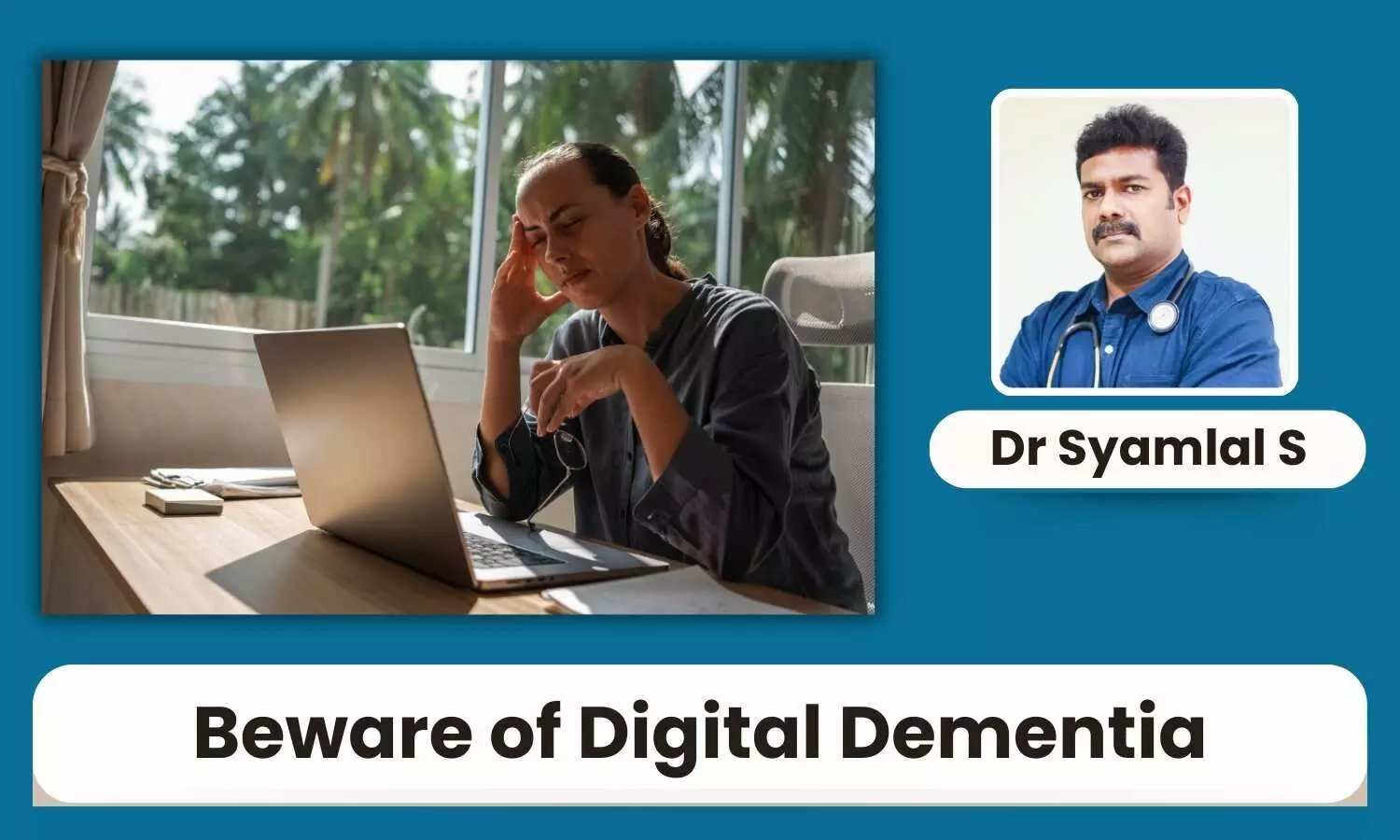Too Much Screen Time, No Exercise? Beware of Digital Dementia - Dr Syamlal S

In today's digital age, the term "Digital Dementia" has emerged to describe a phenomenon where excessive use of digital technology leads to cognitive decline, particularly in memory, attention, and critical thinking.
Coined by German neuroscientist Manfred Spitzer, digital dementia draws a parallel between the cognitive impairments seen in heavy technology users and those typically associated with dementia, such as Alzheimer's disease. While the comparison is stark, it highlights growing concerns about the impact of digital overuse on brain health.
Cognitive Impacts of Digital Overuse
The various cognitive impacts of digital overuse includes:
1. Memory Issues
Reliance on smartphones and other devices to store information can lead to a decline in the ability to remember details independently. This dependence on external memory storage means that the brain is not exercised in ways that enhance memory retention.
2. Attention Deficits
Constantly switching between tasks on digital devices can fragment attention, making it difficult to focus on a single task for an extended period. This can lead to reduced productivity and increased mental fatigue. The immediate gratification provided by digital media can also reduce the ability to maintain sustained attention.
3. Developmental Concerns
Excessive screen time during crucial developmental stages can interfere with the growth of essential cognitive skills in children and adolescents. This can manifest as difficulties in learning, memory formation, and problem-solving abilities.
4. Physical Health Issues
Prolonged use of digital devices often results in poor posture, leading to musculoskeletal issues such as neck pain and back problems. Extended screen time can also cause digital eye strain, characterized by dry eyes, headaches, and blurred vision. Exposure to blue light from screens, especially before bedtime, can disrupt sleep patterns by interfering with melatonin production.
5. Social Skills and Emotional Health
Heavy reliance on digital communication can erode face-to-face social skills, making it harder to read non-verbal cues and engage in meaningful interpersonal interactions. Overuse of digital technology can also contribute to social isolation, as virtual interactions replace real-life social activities.
Therapeutic Strategies for Digital Dementia Mitigation
The various therapeutic strategies for mitigating digital dementia include:
1. Digital Detox
Implement regular breaks from digital devices throughout the day. Designate screen-free zones in the home to encourage face-to-face interactions and better sleep hygiene.
2. Mindfulness and Focus Training
Engage in mindfulness meditation and other exercises to improve concentration and reduce stress. Practice tasks that require sustained attention, such as reading books, solving puzzles, or engaging in hobbies.
3. Physical Activity
Regular physical activity is crucial for brain health, increasing blood flow to the brain, reducing stress, and enhancing cognitive function. Spending time outdoors can also help reduce screen time and provide mental health benefits.
4. Healthy Sleep Habits
Avoid using digital devices at least an hour before bedtime to reduce blue light exposure and improve sleep quality. Maintain a regular sleep schedule to support overall brain health.
5. Cognitive Training
Engage in activities that challenge memory and critical thinking, such as memory games, puzzles, and strategic games. These activities stimulate different parts of the brain and enhance cognitive function.
6. Social Engagement
Prioritize real-life social interactions to enhance communication skills and emotional intelligence. Participate in group activities or community events to foster social connections and reduce reliance on digital communication.
Digital dementia is a growing concern in our increasingly digital world. While technology offers numerous benefits, it is crucial to balance its use with activities that support cognitive health and overall well-being. By adopting mindful technology usage, engaging in regular physical activity, maintaining healthy sleep habits, and fostering real-life social
interactions, individuals can mitigate the cognitive impacts of digital overuse and maintain a healthy, balanced lifestyle. The key lies in creating a harmonious relationship with technology, where its advantages are maximized without compromising cognitive health.


